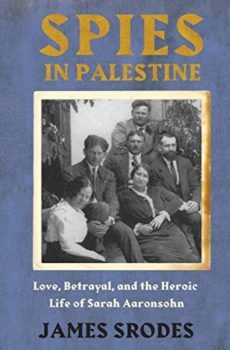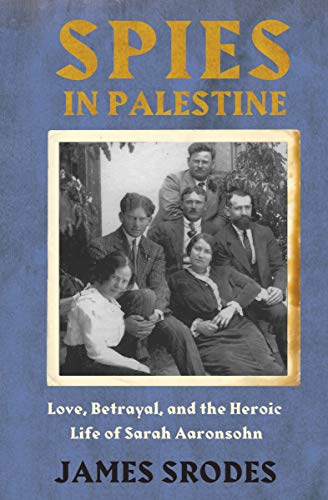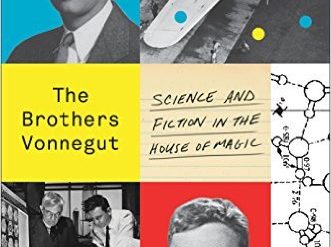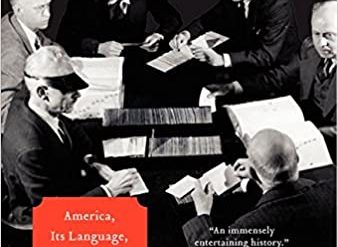
In the early history of the Israeli state, the name Aaron Aaronsohn stands out. In some ways, the agronomist who discovered an ancient strain of wheat that could be grown in the desert is as significant a figure as Chaim Weizmann and Baron Edmond de Rothschild. Large numbers of Jewish colonists could flourish in Palestine only once they could grow enough food. Now, in Spies in Palestine, American journalist James Srodes demonstrates that Aaronsohn’s role as a spy for the British in World War I may have played at least as significant a role in Israeli history as his work in agronomy.
Lawrence of Arabia dedicated his book to this female Jewish spy
Srodes’s book is framed as a biography of Aaronsohn’s younger sister, Sarah, who joined Aaron late in the war and assumed command of the spy network he had founded. Sarah Aaronsohn was, undoubtedly, a hero. She has been celebrated as the “Joan of Arc of Israel” for her courage and the martyrdom she suffered when the Turks discovered the spy network she directed. And there is strong evidence that an even more celebrated figure in the history of that era, T. E. Lawrence (“Lawrence of Arabia”), dedicated The Seven Pillars of Wisdom to Sarah. (The dedication reads, “To S. A.”) If we can believe the testimony of a contemporary of Lawrence’s who spoke with him much later, Lawrence was in love with her.
Spies in Palestine: Love, Betrayal, and the Heroic Life of Sarah Aaronsohn by James Srodes (2016) 222 pages ★★★★☆
A pivotal step on the road to the founding of the State of Israel
But Srodes’s book makes clear how much larger a role Sarah’s famous older brother played in helping the British seize Jerusalem from the “sick man of Europe.” Aaronsohn’s name seems to appear on nearly every page. (His tireless efforts to persuade the British to invade what was then called Syria-Palestine was a pivotal step that much later would lead to the founding of the Jewish State of Israel.) And his sister was confined to Constantinople, trapped in a loveless marriage, until the the end of 1916. Her work directing the NILI spy network lasted only from January to October 1917, when she was captured and tortured by the Turks.
She demonstrated great courage and extraordinary resourcefulness
To give Sarah her due, even though she was overshadowed by her brother, her work as a spy demonstrated not just great courage but extraordinary resourcefulness. At the peak of her work running the NILI operation, she “had two dozen full-time agents and a network of roughly twice that number of auxiliaries . . . Spread from Damascus to Jerusalem, most of the full-time agents were former [members of the local Jewish militia] and personal loyalists. The others often held positions of trust—and thus of equal danger—as civilian workers for the Turkish government or armed forces.” And the intelligence she pieced together from the steady stream of reports from all these agents provided General Allenby‘s army with a level of detail about Turkish defenses that is rarely available to any general in war.
A window onto an important era in Middle Eastern history
Spies in Palestine opens a window on an important era in Middle Eastern history. While the British, French, Russians, and Germans were struggling for dominance in Europe, a brutal war was underway in the Middle East. The Turkish Empire was crumbling, and Turkey, allied with Germany, was on the verge of exterminating all the region’s religious minorities, as they’d done in 1915 with the Armenians. The Aaronsohns and other Jewish settlers—and Sarah Aaronsohn in particular—played central roles in defeating the Turks and thus preventing another genocidal campaign in the Middle East.
For related reading
For a fascinating book on the first Israeli spies (in the 1940s), check out Spies of No Country: Secret Lives at the Birth of Israel by Matti Friedman—An amazing true story of Israeli spies in the country’s War of Independence.
Check out:
- 25 worthy books about Jewish topics
- Great biographies I’ve reviewed: my 10 favorites
- 20 top nonfiction books about history
And you can always find all the latest books I’ve read and reviewed on the Home Page.


























